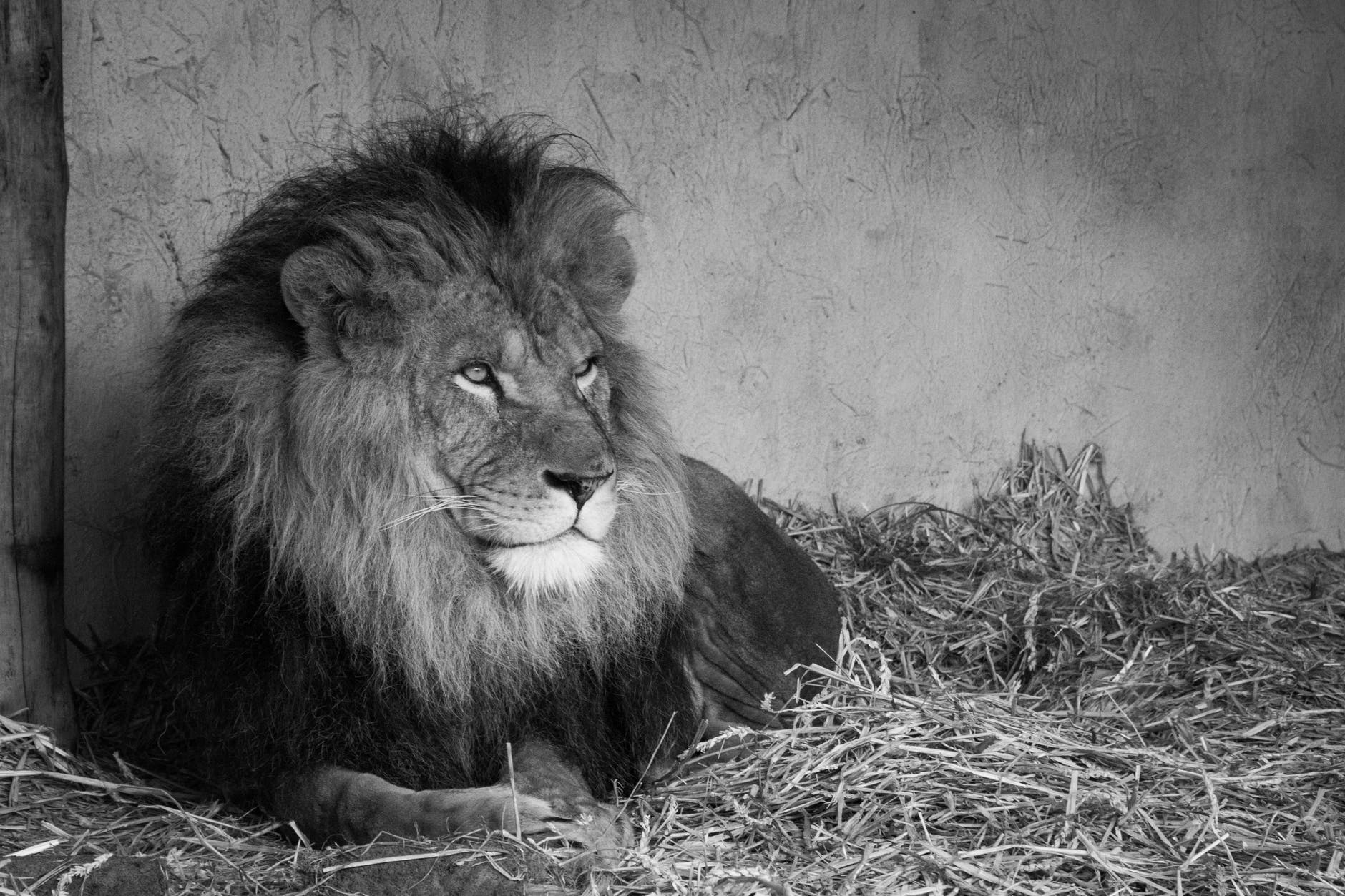Why the Lion of the Tribe of Judah? Part 2

Last time we introduced Judah, the son of Jacob and origin of the phase “the Lion of the tribe of Judah." If you have not read part one of the story, please read it first. This is the conclusion of his life.
The Third Event: Facing Joseph
So far through Judah’s life, we do not see anything noble in his character, but things change when we come to Genesis 44. At this point, Joseph was the second most powerful man in the known world and his brothers had come to him for food and grain. He knew who they were, but they did not know who he was.
This was the second time they had come to him (Gen 42:1-5). On the first trip, Jacob did not let Benjamin go with his brothers to Egypt because of fear of what might happen to him (Gen 42:4). Jacob believed the brother’s story that Joseph had been killed by a beast (Gen 37:33), and gave Benjamin, his only other son from Rachel, his preferential treatment.
When the brothers faced Joseph the first time, Joseph acted like he thought they were spies. He gave them grain, but he made Simeon stay in Egypt and said that if they were to return, they must bring Benjamin (Gen 42:20).
They eventually used all the grain from the first trip and Jacob told his sons to return to Egypt for more. They reminded him that they could not return without Benjamin, so Jacob would not let them go. Judah then makes an important promise to Jacob:
“Send the boy with me, and we will arise and go, that we may live and not die, both we and you and also our little ones. I will be a pledge of his safety. From my hand you shall require him. If I do not bring him back to you and set him before you, then let me bear the blame forever.” (Gen 43:8-9)
It is important to see that before their trip back to Egypt, there was an agreement between the father Jacob and Judah the son to ensure the safety of Benjamin.
When the brothers faced Joseph the second time, Joseph again gave them grain, and again tested them. He arranged for one of his servants to put his silver cup into Benjamin’s sack before they returned to their land (Gen 44:1-2). Then acting like he suspected one of them of stealing his cup, his servant caught up with them and brought them back to face Joseph.
As arranged, Joseph saw his cup in Benjamin’s sack. Judah immediately admitted the guilt of his brother in stealing the cup and offered for all of the brothers to stay in Egypt as servants to Joseph (Gen 44:16). Joseph rejected this offer and focused on Benjamin, “But he said, ‘Far be it from me that I should do so! Only the man in whose hand the cup was found shall be my servant. But as for you, go up in peace to your father’” (Gen 44:17).
Judah stepped up and made a powerful speech to Joseph:
“Now therefore, as soon as I come to your servant my father, and the boy is not with us, then, as his life is bound up in the boy’s life, as soon as he sees that the boy is not with us, he will die, and your servants will bring down the gray hairs of your servant our father with sorrow to Sheol. For your servant became a pledge of safety for the boy to my father, saying, ‘If I do not bring him back to you, then I shall bear the blame before my father all my life.’ Now therefore, please let your servant remain instead of the boy as a servant to my lord, and let the boy go back with his brothers. For how can I go back to my father if the boy is not with me? I fear to see the evil that would find my father” (Gen 44:30-34).
We see a complete change from the type of man Judah used to be when he sold his brother Joseph for twenty shekels of silver into slavery. Judah is now willing to offer himself in place of his brother whom he believed was guilty of stealing Joseph’s cup. Joseph no longer could hide who he was. He broke down in tears and revealed himself to his brothers (Gen 45:1-3).
A Type and Shadow
In this final act, Judah shows us an amazing type and shadow of Jesus himself. Judah knew that a sin had been committed. Even though Judah was not guilty, he willingly offered to take the punishment of the guilty. There was a price to pay, and he did not ask for the sin to be overlooked, but that he pay the price and let his brother go free.
As we saw earlier, the plan was a plan made beforehand by the Father and the Son (Gen. 43:8-9), like between the Father and the Son to save humanity before anything existed (John 17:1-5). Judah took the punishment for another’s sin so that the wrath of the Sovereign God would be satisfied, like Jesus took the punishment for our sins so that the wrath of the Sovereign God would be satisfied (Rom 3:25).
The Blessing
Judah, of course, is a dim shadow as Jesus was perfect from birth. After Judah’s speech, Jacob and all the family and livestock moved to Egypt (Gen 46:5-7). At the end of his life, Jacob blessed his sons and gives a great blessing to Judah:
“Judah, your brothers shall praise you;
your hand shall be on the neck of your enemies;
your father’s sons shall bow down before you.
Judah is a lion’s cub;
from the prey, my son, you have gone up.
He stooped down; he crouched as a lion
and as a lioness; who dares rouse him?
The scepter shall not depart from Judah,
nor the ruler’s staff from between his feet,
until tribute comes to him;
and to him shall be the obedience of the peoples.
Binding his foal to the vine
and his donkey’s colt to the choice vine,
he has washed his garments in wine
and his vesture in the blood of grapes.
His eyes are darker than wine,
and his teeth whiter than milk. (Gen 49:8-12)
This is where we see the meaning of “the Lion of the tribe of Judah” in Revelation 5:5. The lion symbolizes power, and the scepter symbolizes royalty. In this blessing we see that Judah's descendants would rule over his brothers and that he will conquer his enemies.
Jacob’s blessing is seen through the anointing of David in 1 Samuel 16:12 and confirmed in the historical Psalm 78:67-68 when the psalmist says, “He rejected the tent of Joseph; he did not choose the tribe of Ephraim, but he chose the tribe of Judah, Mount Zion, which he loves.”
In his life and sacrificial death, we see that Jesus is the promised Lion of the tribe of Judah. While Judah provided salvation for his family in a sinful and flawed way, Jesus fulfilled Jacob’s blessing perfectly and fully, accomplishing salvation for his people by crushing the head of our enemy Satan and is worthy to receive all our praise and worship.
